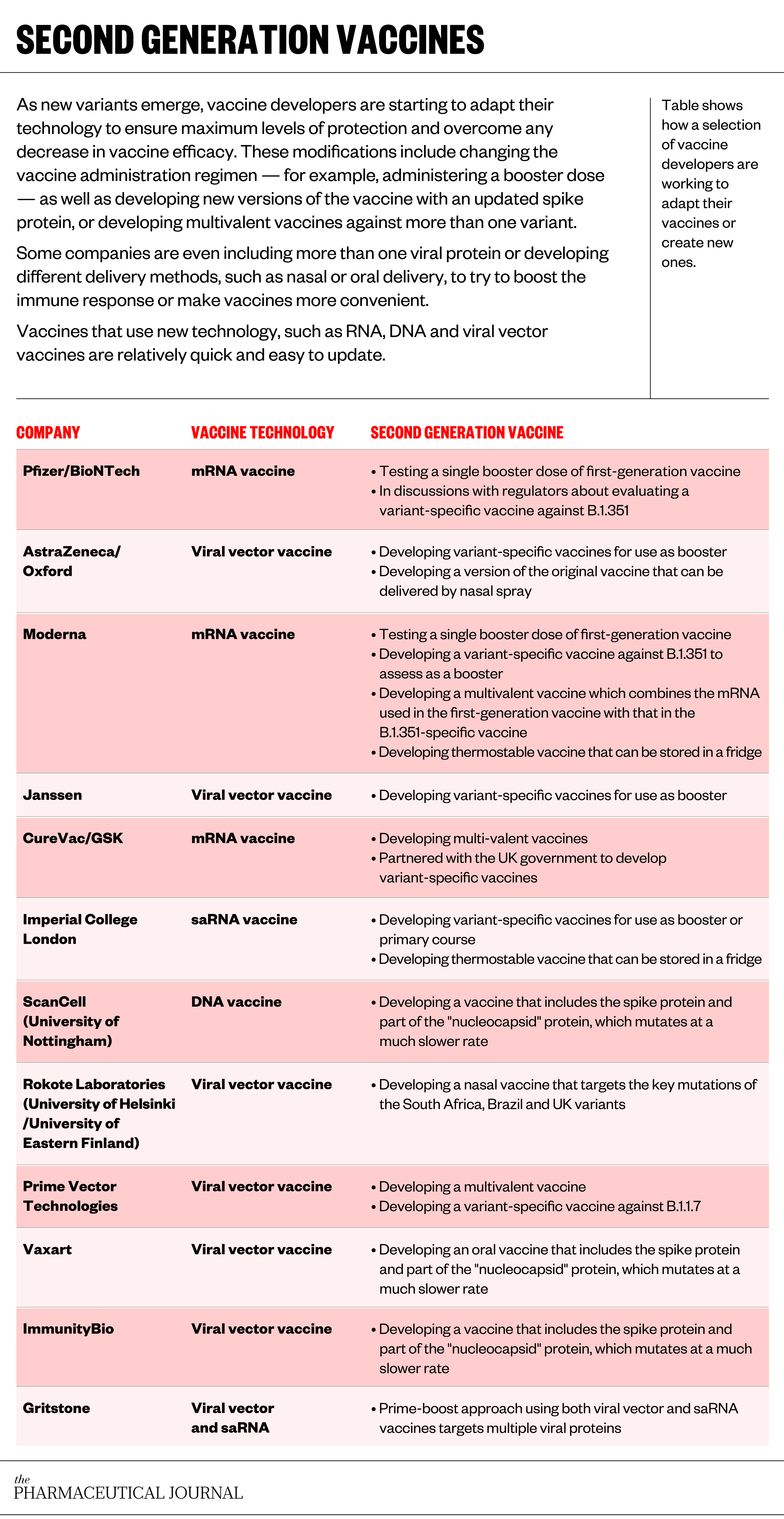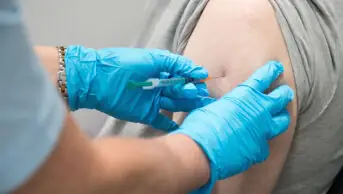As lockdowns lift across the UK, one of government scientists’ main concerns is that new variants of SARS-CoV-2 — which could be more transmissible, more deadly or even able to evade the immune response — will circulate more widely.
Outbreaks of the so-called South Africa variant — which has mutations associated with immune escape — were seen in London soon after restrictions started to ease. And a new variant first detected in India — which also has immune escape mutations — is now being monitored more closely after 132 cases, mostly imported, were identified in the UK.
There are currently four variants the UK government has designated ‘variants of concern’ (VOC); seven labelled ‘variants under investigation’ (VUI); and a further 13 that are ‘signals in monitoring’ (see Figure).

Variants that are considered to have concerning epidemiological, immunological or pathogenic properties, as well as evidence of community transmission in the UK or abroad, are first designated as a VUI. After being risk assessed by the relevant expert committee, a VUI may be upgraded to VOC (see Box).
The first VOC — B.1.1.7 — was detected in Kent in September 2020 and is now the dominant lineage in the UK. It has also been detected in more than 100 countries around the world.
A similar variant with an additional mutation — B.1.1.7 + E484K — was detected in Bristol in December 2020 and is also circulating in the UK but at very low levels, with no new cases reported since 1 March 2021.
Two further VOCs have been identified in the UK — one first detected in South Africa and one first detected in Japan (in a traveller from Brazil). To date, there are relatively small numbers of cases in the UK with only isolated pockets of community transmission. Identified cases are being tackled aggressively through surge testing — increased testing and enhanced contact tracing in specific locations — and genomic sequencing.
Box: What are variants of concern?
VOCs have been demonstrated to be associated with:
- An increase in transmissibility; and/or
- An increase in virulence or change in clinical disease presentation; and/or
- Escape from immunity derived from natural infection; and/or
- A decrease in effectiveness of public health or clinical countermeasures. This includes vaccination, treatment in current clinical use, and testing if the impact is such that it is not easily mitigated by standard laboratory quality and regulatory measures.
New variants emerge when there is a specific set of mutations — changes that appear in the virus genome as it replicates — that may or may not have an impact on the way the virus behaves.


Sources: SARS-CoV-2 variants of concern and variants under investigation in England: technical briefings 7 and 9; Variants: distribution of cases data; WHO weekly epidemiological update on COVID-19 – 13 April 2021; bioRxiv 2021.02.27.433180; doi: https://doi.org/10.1101/2021.02.27.433180; The Lancet, online 12 April 2021, doi: https://doi.org/10.1016/S1473-3099(21)00170-5; bioRxiv 2021.01.14.426475 doi: https://doi.org/10.1101/2021.01.14.426475
Infographics: Alisdair Macdonald
Editorial advisers: Wendy Barclay and Thomas Peacock, department of infectious disease, Imperial College London.


